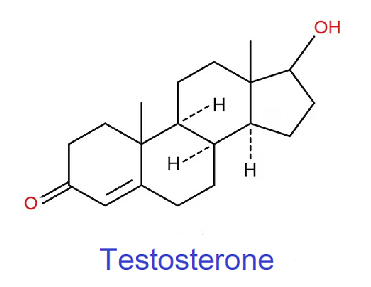Written By: Dr. Anderson ~
8/17/2023

Testosterone is a hormone that is often associated with men, but did you know that women also need testosterone for their health and well-being? In fact, women have more testosterone per milliliter than they do estrogen or progesterone. Testosterone is produced by the ovaries, adrenal glands, and other tissues in small amounts, and it plays a role in various aspects of a woman's body, such as:
- Libido (sex drive or desire for sex).
- Bone and muscle health.
- Mood and energy.
- Menstrual cycle and fertility.
Some women may experience low testosterone levels due to various factors, such as aging, menopause, surgery, or medical conditions. Low testosterone can affect a woman's quality of life and cause several symptoms, such as:
 Low sex drive (hypogonadism).
Low sex drive (hypogonadism).- Lack of energy and feeling tired.
- Loss of strength and muscle tone.
- Infertility or trouble conceiving.
- Irregular menstrual cycle.
- Vaginal dryness.
- Depression or anxiety.
- Thinning hair.
- Dry, brittle skin.
- Trouble sleeping.
If you have any of these symptoms, you may want to check your testosterone levels, as well as other reproductive hormones, with a blood test or saliva test.
The treatment for low testosterone in women depends on the cause and severity of the condition. Some possible treatment options include:
- Hormone replacement therapy (HRT). This involves taking synthetic or bioidentical hormones to restore the balance of testosterone and other hormones in your body. HRT can be administered through pills, patches, gels, creams, injections, or pellets. However, HRT may have some risks and side effects, such as increased risk of blood clots, stroke, breast cancer, and heart disease. You should consult your doctor before starting HRT and weigh the benefits and risks carefully.
- Lifestyle changes. This includes eating a balanced diet, exercising regularly, managing stress, getting enough sleep, and avoiding smoking and alcohol. These habits can help improve your overall health and well-being, as well as boost your natural production of testosterone and other hormones.
- Supplements. Some natural or herbal supplements may help increase your testosterone levels or alleviate some of the symptoms of low testosterone. You should always check with your doctor before taking any supplements and be aware of the potential interactions and side effects and make sure that you are taking a supplement from a reputable manufacturer that will guarantee the product content as supplements are not regulated
Low testosterone in women is not a rare or trivial condition. It can affect your physical, mental, and emotional health in many ways. If you think you may have low testosterone, don't hesitate to talk to your doctor and get tested. There are treatments available that can help you restore your hormone balance and improve your quality of life.


 Low sex drive (hypogonadism).
Low sex drive (hypogonadism).